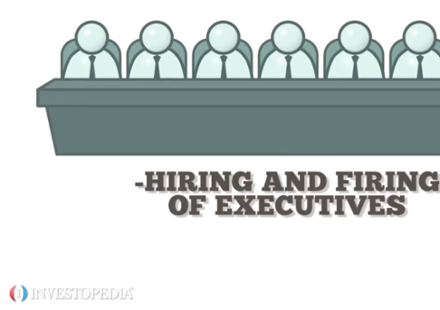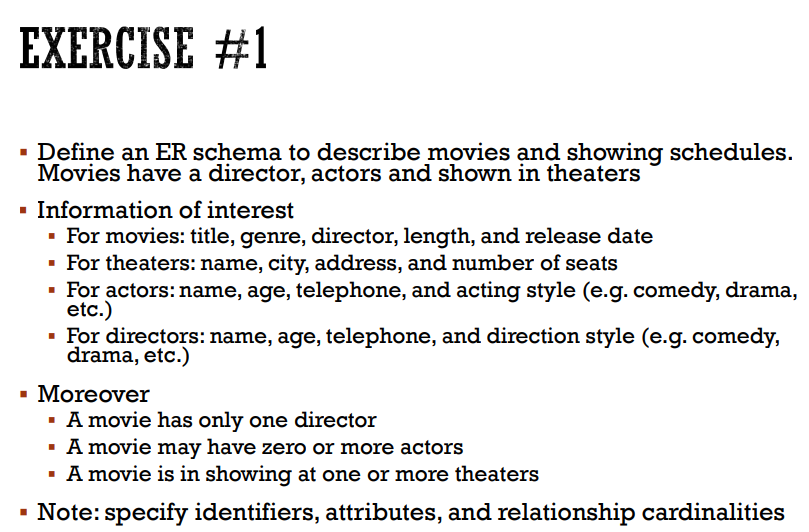What Does a Director Do?
by Michael
Posted on 23-10-2020 04:53 AM

The term gift for funeral gift for funeral director funeral director mug funny funeral director gifts funeral director mug funny funeral director gifts is a title given to the senior management staff of businesses and other large organisations. The term is in common use with two distinct meanings, the choice of which is influenced by the size and global reach of the organisation and the historical and geographic context.
 Further to this, the term is also used in reference to various technical (legal) definitions specific to corporate governance legislation in individual countries.
Further to this, the term is also used in reference to various technical (legal) definitions specific to corporate governance legislation in individual countries.
Recent examples on the web singleton has served as director of nursing administration for the past six years. — nola. Com, "new orleans, baton rouge area people in business for sept. 27, 2020," 27 sep. 2020 john ratcliffe, who has served as the director of national intelligence overseeing the nation’s 17 spy agencies since may, has assisted with declassifying various trump-russia investigative records over the past few months. — daniel chaitin, washington examiner, "'more damning': lindsey graham hints at significant declassification related to russia investigation," 27 sep. 2020 fannie was appointed librarian of main avenue high school (now fox tech) in 1912, and nellie followed her to the same school as music director three years later. — paula allen, expressnews. Com, "san antonio singer’s career detoured into music writing," 26 sep. 2020 chavez, who lives in san ysidro, has been with casa cornelia since 1995 and has served as executive director since 2008. — lisa deaderick, san diego union-tribune, "casa cornelia executive director celebrates 25 years of making a difference for people seeking asylum," 26 sep. 2020 but as director of the africa centers for disease control and prevention, nkengasong has helped to steer africa's 54 countries into an alliance praised as responding better than some richer countries, including the united states. — arkansas online, "as us struggles, africa's covid-19 response is praised," 26 sep. 2020 during her inaugural year as director, berns initiated free admission. — deborah vankin, los angeles times, "ucla’s fowler museum director is retiring after nearly two decades," 25 sep. 2020 mike bell took over as the twins' bench coach this year after spending 13 years with the arizona diamondbacks – the last 10 as farm director. — john fay, the enquirer, "bell family member clear about allegiance when brothers meet in reds-twins game," 25 sep. 2020 meka millstone-shroff, who serves as a strategic operating adviser and board member to a variety of companies, including serving as an independent director on the boards of party city and nanit. — maria halkias, dallas news, "neiman marcus has officially exited bankruptcy," 25 sep. 2020.
Large companies and organizations need a highly capable person with outstanding business, leadership and communication capabilities to plan, coordinate and manage their operations. The person they choose to do this is a director of operations. These key people in an organization's management structure constantly review and evaluate business procedures, involving expenditure and assets, including those in senior management positions.
Compared to other jobs, directors of business operations have a growth rate described as "as fast as average" at 6% between the years of 2018 - 2028 according to the bureau of labor statistics. In fact, the number of director of business operations opportunities that are predicted to open up by 2028 is 150,600.
Nearly every sizable organization has at least one director of technology – and many companies have more than one. Depending on the scale and purpose of a company, the role of the director of technology can vary greatly. And, the larger the company, the more it directors there may be.
An executive director acts as the head of an organization or company. In the united states and the rest of north america, this designation is commonly used to refer to leaders of nonprofit organizations. Just like chief executive officers of for-profit companies, executive directors also think about and implement the strategic plans of the organization. They have to take into consideration their resources as well as the time table it is following for the implementation of its different projects.
Film directors block and stage actors
From longman dictionary of contemporary englishrelated topics: business management , media , theatre directordi‧rec‧tor /dəˈrektÉ™, daɪ- $ -É™r/ â—â—â— s2 w1 noun [countable] 1 bbcsomeone who controls or manages a company → executivedirector of a former director of gartmore pensions ltd the company is run by a board of directors (=a group of directors). 2 bbbmanagersomeone who is in charge of a particular activity or organization director of the director of educationfinance/marketing/sales etc director (=the person in charge of the financial department etc) 3 amaptthe person who gives instructions to the actors and other people working on a film or play → producer → managing director , non-executive director collocations – meaning 3: the person who gives instructions to the actors and other people working on a film or playtypes of directora film/movie directorthe film director stephen spielberga theatre director british english, a theater director american english:laura thompson is a theatre director now in the middle of rehearsals for 'romeo and juliet'.

What is a Director of Operations?
Among the funeral service director’s key task areas:
consult with families or friends of the deceased to arrange funeral details, such as obituary notice wording, casket selection, or plans for services. Direct and supervise work of embalmers, funeral attendants, death certificate clerks, cosmetologists, or other staff. Monitor funeral service operations to ensure that they comply with applicable policies, regulations, and laws.

A director of operations is responsible for the direction and coordination of an organization. This position usually requires an advanced degree like a master of business administration, as a director of operations is responsible for keeping businesses profitable throughout its every function, from human resources to production. While daily functions of a director of operations rely heavily on a business or organization’s function, there is an overall job function.
A director of operations provides the overall direction to an organization through planning, policies and coordinating a variety of activities. They must work closely with other executives in the organization to ensure that the company meets its goals. Typically these professionals report to a board of directors and may have to heed their suggestions and direction. Directors of operations may implement new policies or procedures to help daily operations run more smoothly or effectively. They also are responsible for selecting other managers, monitoring the budget and analyzing financial reports. The following chart provides an overview of the education, job outlook and average salary in this field.
In any workplace and for any organization, the director of information technology is likely to take on a variety of tasks and responsibilities. Essentially, the overall scope of the position is to handle the strategy for implementation and use of technology within a company, agency, or organization. There are a number of tasks that are required in order for an information technology director to effectively fulfill this requirement. First, the ability to assess existing and new technologies in conjunction with the needs of a particular organization is essential. Next, information technology directors must be able to evaluate, plan, and execute the changes or additions of processes, computer operations, and technical systems within existing infrastructure.
Directors of football operations usually have had success at some level of the game as well as plenty of connections within the sports community. The majority are former players, coaches or scouts. Those who work at the college level need to have obtained at least a bachelor’s degree. And while a formal education isn’t required to be a director of football operations in the nfl, most have a college degree as well.
Individuals who work in the capacity as the director of operations may be employed in the private or public sector. They may direct, plan, and coordinate the operations of businesses and organizations of various sizes and in a variety of industries. Responsibilities may also include formulating policies and planning the use of materials and human resources to help a business reach maximum productivity.
What Does a Director of Operations Do?
The general consensus among stockholders is that independent directors improve the performance of a company through their objective view of the company's health and operations.
 At times independent outside directors can also bring specific expertise from their sector and/or personal experience. For example, a company specializing in health technologies might bring in an outside director with a prestigious medical background and degree to provide additional insight into the science behind their product(s).
At times independent outside directors can also bring specific expertise from their sector and/or personal experience. For example, a company specializing in health technologies might bring in an outside director with a prestigious medical background and degree to provide additional insight into the science behind their product(s).
A managing director is someone who is responsible for the daily operations of a company, organization, or corporate division. In some countries, the term is equivalent to ceo (chief executive officer) the executive head of a company. In other countries, managing directors primarily work as the heads of individual business units within a company rather than heading up the company as a whole. As a member of senior management, the managing director is also expected to keep a company solvent and to promote expansion and innovation within the industry.
What is a Communications Director?
Communications directors usually lead a team of professionals in representing an organization to its stakeholders and the public. This process includes creating communication campaigns, monitoring public opinions, and handling an organization's branding. They may also engage in fundraising campaigns as well as work with other departments like advertising and marketing. Communications directors work for corporations, educational institutions, and non-profit organizations.
 Although they typically work during traditional business hours, communications directors may need to work outside of normal hours during situations requiring crisis communication. They may also need to travel periodically to attend speaking engagements, meetings, and events.
Although they typically work during traditional business hours, communications directors may need to work outside of normal hours during situations requiring crisis communication. They may also need to travel periodically to attend speaking engagements, meetings, and events.
Communications directors create and manage communications strategies. Toward that goal, they leverage a variety of communications skills as well as multiple years of experience working in domains such as pr , marketing and/or advertising. Some of their primary responsibilities include: drawing up communications plans with clearly defined objectives, key performance indicators, audiences and timetables.
Trump 2020 communications director tim murtaugh told " the daily briefing " friday that the trump campaign would work to "define joe biden" after a new fox news poll showed the president trailing the presumptive democratic nominee by 12 points nationally. "what we know about joe biden is that a lot of americans know about joe biden, but not very many americans know too much about him [personally]," murtaugh told host dana perino.
Other Words from director
Director of admissions salaries in new york director of admissions salaries in orlando director of admissions salaries in chicago director of admissions salaries in stanford director of admissions salaries in san francisco director of admissions salaries in denver salary tips 10 entry-level jobs that pay well how to negotiate your salary 11 words and phrases to use in salary negotiations.
The job titles range from the straightforward to the exotic. Besides the common titles, "director of employee engagement" and "employee engagement manager," other titles include "senior manager of culture, inclusion, and engagement" and "director, employee engagement and culture. "how fulton county, ga. , addressed employee engagement. The job ads for engagement managers or directors of employee engagement are sometimes sprinkled with phrases and words designed to let candidates know that this is a high-energy job. Employers are seeking someone who can "create a culture of impact," and "foster a high-performance culture," as well as "drive culture. ".
First Known Use of director
The primary responsibilities of a director of purchasing are to buy materials for an organization to use or resell and to analyze supplier data. They compare suppliers based on price, quality, and delivery time. The director of purchasing also interviews vendors and visits suppliers to learn about new products and services. They may head a team of purchasers and manage a purchasing department. Skills in business practice and negotiation are essential for this career because directors are required to negotiate contracts on behalf of their organizations. The educational requirement for this job is typically a bachelor's degree in business administration or a related subject. Qualifications include but are not limited to, an understanding of supply chain management, financial analysis, data analysis, inventory management, interpersonal communication, and office administration.
The head of a company’s marketing department is the marketing director. In this role, marketing directors are responsible for strategizing and implementing the organization’s marketing campaigns. They see to it that the marketing projects are not only finished on time but bring in profit for the firm or the client. Marketing directors may either work in-house for a corporation or as a marketing director for a marketing agency handling various clients.
A movie director is a storyteller who needs a lot of people, equipment, creativity and planning to bring his story to a movie audience. And in the process, the director has to hold on to the vision while dealing with temperamental artists, union contract requirements, uncooperative weather, studio time, budget demands and a handful of other uncontrollable uncertainties.
A theatre director is in charge of the creative vision of a theatre production. Their goal is to bring out the best performance from the actors and tell the story of the play in a compelling way. A theatre director also oversees creative choices on set, costume, and design – though those decisions are made in conjunction with the other creatives involved. Theatre at it’s best is a collaborative process and a theatre director will put together a great team to support their vision.
An it director (information technology director) is an employee in charge of technology within an organization. It director is sometimes used interchangeably with cio but, in the majority of large enterprise organizations, they are two separate positions. The cio focuses more on technology strategy while the it director works directly with the technology tools. Typically, the it director oversees the deployment of new systems and services, the creation of it vendor contracts, the development of policies and initiatives, and other areas related to the it function. Depending on the organization’s it governance model, the it director may report directly to the cio.
From small town companies to giant corporations, the goal of every business is the same: to become faster, stronger, and more profitable. And that's where a business director comes in. Whether finding new streams of revenue, evaluating consumer demographics, or resolving administrative issues, business directors help companies progress. In the corporate world, "progress" usually means "make more money," so it's no surprise that a business director's primary goal is to develop new areas of profit. To accomplish this work, you keep your fingers on the pulse of your industry: reading trade journals, scanning relevant articles, and browsing social media outlets like facebook and twitter.
Learn More about director
An emergency management director designs emergency response plans and procedures to respond to emergencies such as natural disasters. They often work in coordination with government agencies, public safety officials, nonprofit organizations, and elected officials and help lead the response during and after emergencies. Watch a video to learn what an emergency management director does.
A convention director, who may also commonly be referred to as a convention services manager, plays an important role in the hospitality industry. As the lead professional in charge of coordinating events, meetings, and ultimately conventions, the director must work with several different departments and synchronize the needs of the employees within each team as well as the needs of the clients. If you are currently studying for a degree in event planning, hospitality or another related area, read on and learn more about the role of directors in convention settings.
What does an Executive Director do?
But in paving your own route to your career goals , understanding that there is more to a specific title than nomenclature alone can help hone your strategy. While the roles of manager and director are not necessarily mutually exclusive—some directors are also managers and vice versa depending on a corporation’s particular structure— here’s the breakdown on the primary differences between these titles and how you can advance between them. Keep in mind, however, where some executives hold both roles, some of the job skills and requirements described below may both be needed for optimal performance.
Because the game is often the brainchild of the creative director, it’s the video game director’s job to interact with the publishers and the marketing department. It’s also their responsibility to attempt to sell the game to publishers and executives not currently involved in the project. It is important that the director is good with people and good at sales, knowing exactly how to market the game and who to sell it to.
1. See the big picture. Keep the organization’s mission and purpose in the forefront when discussing issues and opportunities. As the organization’s leaders, directors must develop and monitor the vision and goals, while the executive director and staff focus on the details of the organization’s work. 2. Possess and develop the skills and expertise needed for oversight. Understand the areas of knowledge that make up a director’s role, and seek information and educational opportunities to become a better director.
Executive directors report directly to the board and are responsible for carrying out the board's decisions. Although an executive director is also involved in the day-to-day management of the organization, these duties may be shared with a chief operating officer (coo). Executive directors of non-profit organizations are usually involved with fundraising efforts, as well as the promotion of the organization in order to raise public awareness and boost membership. The board of directors (bod) may appoint an executive director, and in some cases, the vote must be approved by a specified percentage of the membership. Most executive directors are paid; however, for very small non-profit organizations, the position may be on a volunteer basis only.
Only outside directors get compensation specifically for serving on the board. Inside directors , such as c-suite level executives, don’t receive additional compensation.  by the boston globe’s calculations, the median pay in 2014 for a board seat at a micro-cap company (one with less than $500 million in revenues) was $105,583; pay increases with company size, up to $258,000 for board members of the 200 largest u. S. Corporations (those with more than $10 billion in revenues). .
A person who conducts the affairs of a company. Directors act as agents of the company, owe fiduciary duties to it and have a duty of care towards it. Directors may have executive functions or they may be non-executive directors, their principal functions being to safeguard the interests of investors. Directors, while not servants of the company as such, have a responsibility to it not dissimilar to the responsibility owed by a trustee to his beneficiaries. Specifically, directors are under duties to exercise their powers for the purposes for which they were conferred and to exercise them bona fide for the benefit of the company as a whole; and not to put themselves in a position in which their duties to the company and their personal interests may conflict.
The role of a company director
A managing director conducts and implements new strategies that are important in increasing the company's profits. He acts as the chief salesman by contacting new clients and presenting proposals aimed at winning new business. After winning the clients, he addresses their concerns in order to create positive business relationship. Managing directors stay informed of new development in the industry and recommend new strategies that are helpful to the growth of the company. They oversee the recruitment and retention of new employees. It is the role of a managing director to search for new and experienced talent and conduct thorough interviews in order to find the best-suited employee. Apart from employment, managing directors ensure all employees work under healthy working conditions in order to maximize on their productivity. The crucial role of a managing director is briefing the board of directors on the company's progress. All recommendations made members of the board of directors are based on the managing director's report.
While daily duties may vary depending on the industry and the company, the abilities to lead and inspire others are key. Mike lichter, creative director at cardwell beach, a digital marketing agency in brooklyn, new york, agrees. “creative director is a bit of a misnomer; a more appropriate title would be thought wrangler,†he says. “a creative director’s main role is to guide—to recognize, nurture and protect people’s good ideas. â€.
The role of the director is to: consider the strategic vision for the company offer fresh thinking and additional skills and knowledge have extensive networks to help the company grow act in good faith and in the best interests of the company have no conflicts of interest with the company ensure that the company remains solvent.
Do you have a wide range of experience levels and ages in your company? you’ll need to take that into account when making job titles, within reason. There is no reason to appease someone with a “big†title they don’t deserve, like giving a 25 year old a “managing director†role. However, remember that people will view these titles to reflect the hierarchy of the company, so take that into account.
This depends on the size of a company and its setup, though most business development directors report to a vice president or to the owners.
An official of a joint-stock company elected by the shareholders at the company's annual general meeting and charged with certain powers and responsibilities to run the company on behalf of the shareholders. Each company will have a number of directors who constitute the board of directors and the directors will meet regularly to determine company policy. The board generally elects one of their number to act as chairman of the board of directors and may also elect one of their number to serve as managing director with responsibility for the day to day management of the company. Some directors will be executive directors and will hold senior salaried management posts in the company; others may be non-executive directors who are not primarily employed by the company but may be bankers or executives employed by other companies, contributing their expertise at board meetings in return for directors' fees. See corporate governance.
A director is the member of the board of directors. “director means a director appointed to the board of a company†sec 2(34) according to the companies act states the board of directors in relation to a company refers to a collective body of the directors of the company. Sec 2(10).
A director is a person who is in charge of something important. The advertising director for a large company is the head of the department that places ads in newspapers and on tv. Businesses have directors, and movies and plays also have directors, who oversee the way the actors deliver their lines and interpret the script. An orchestra's conductor can also be called a "musical director," and much like a film director, she guides the musicians and supervises their performance. The latin root, dirigere, means "set straight. ".
N. The policy managers of a corporation or organization elected by the shareholders or members. The board in turn chooses the officers of the corporation, sets basic policy, and is responsible to the shareholders. In small corporations there are usually only three directors. In larger corporations board members provide illustrious names, but the company is often run by the officers and middle-management who have the expertise. (see: corporation ).
A member of a company’s board of directors who is not part of the executive team. A non-executive director (ned) typically does not engage in the day-to-day management of the organization, but is involved in policy making and planning exercises. In addition, non-executive directors’ responsibilities include the monitoring of the executive directors, and to act in the interest of any stakeholders. Also called external director, independent director and outside director.
Search
Categories
- Stock Trader
- Criminologist
- Coworker Leaving
- Mortician
- Virologist
- Veterinary Technician
- Title Examiner
- Team Leader
- Technical Recruiter
- Senator
- Scribe
- Perioperative Nurse
- pediatrician
- Modeller
- Military
- Economist
- Coworker
- Captain
- Arborist
- Voter
- 14
- 12
- Worker
- Chemistry
- Actuary
- Actor
- Announcer
- Wellness Nurse
- Judge
- Academic Dean
- Administrator
- Agricultural
- Administrative Assistant
- Agronomist
- Barber
- Analyst
- Pharmacist
- Call Center Support
- Cameraman
- Interventional Radiologist
- Wedding Officiant
- Politics
- Public Health
- Respiratory Therapist
- Singer
- Sniper
- Teacher
- Manatee
- Hacker
- Gambling
- Flight Attendant
- Entertainer
- Employee
- Daily Nutritionist
- Kitchen Manager
- Astronomer
- American Upholsterer
- Activist
- Accountant
- Writer
- Vice President
- Inventor
- Drafter
- Debater
- Carpenter
- Baker
- Attorney
- Astronaut
- Advisor
- Occupational Therapist
- Nutritionist Fact
- Municipal Arborist
- Management
- Mail Carrier
- Livestock Farmer
- Landscape Contractor
- Land Surveyor
- Insurance Investigator
- Insurance Broker
- Inspector
- Hunter
- Historian
- Hiker
- Hairstylist Black
- Hairstylist
- Gunsmith
- Gun Shooter
- Grant Writer
- Government Auditor
- Gold Panning
- Gardener
- Forensic
- Fisherman
- Fireman
- Firefighter
- Esthetician
- Entrepreneur
- Engineer
- EMT
- Electrician
- Driller
- Doctor
- Diver
- Dispatcher
- Dishwasher
- Director
- Dietitian
- Detective
- Dancer
- Creative Writing
- Counselor
- Cloud Architect
- Climber
- Chef
- Chairman
- Cardiac Sonographer
- Boss
- Bookkeeper
- Bee Keeper
- Bartender
- Auctioneer
- Architect
- Appraiser
- Watchmaker
- Wanker
- Typist
- Trooper
- Train Controller
- Tool and Die Maker
- Therapist
- Technician
- Surgeon
- Supervisor
- Stripper
- Soldier
- Sociologist
- Social Worker
- Sheriff
- Sexy Pick Up Lines
- Self Reminder
- Secretary
- Scientist
- Scheduler
- Sailor
- Roofer
- Marshal
- Manager
- Librarian
- Lawyer
- Landscaper
- Investigator
- Retirement
- Registered Nurse
- Recruiter
- Records Clerk
- Realtor
- Rancher
- Quilter
- Psychology
- Psychologist
- Principal
- Priest
- Postmaster
- Office Assistant
- Nutritionist
- Nurse
- Network Administrator
- Mechanic
- Mayor
- Podiatrist
- Plumber
- Planner
- Pipe Fitter
- Pilot
- Photographer
- Phlebotomy Technician
- Painter
- Nurse Practitioner
- Identifier
- Lacemaker
- HRD
- Hatter
- Host
- Herdsman
- Bouldering
- Assassin
- Bomberman
- Army
- Attendant
- Blogger
- Clergyman
- Cashier
- Botanist
- Bodyguard
- Aquascaping
- Assistant
- Electorate
- Physician
- Arbitrator
- Administrative